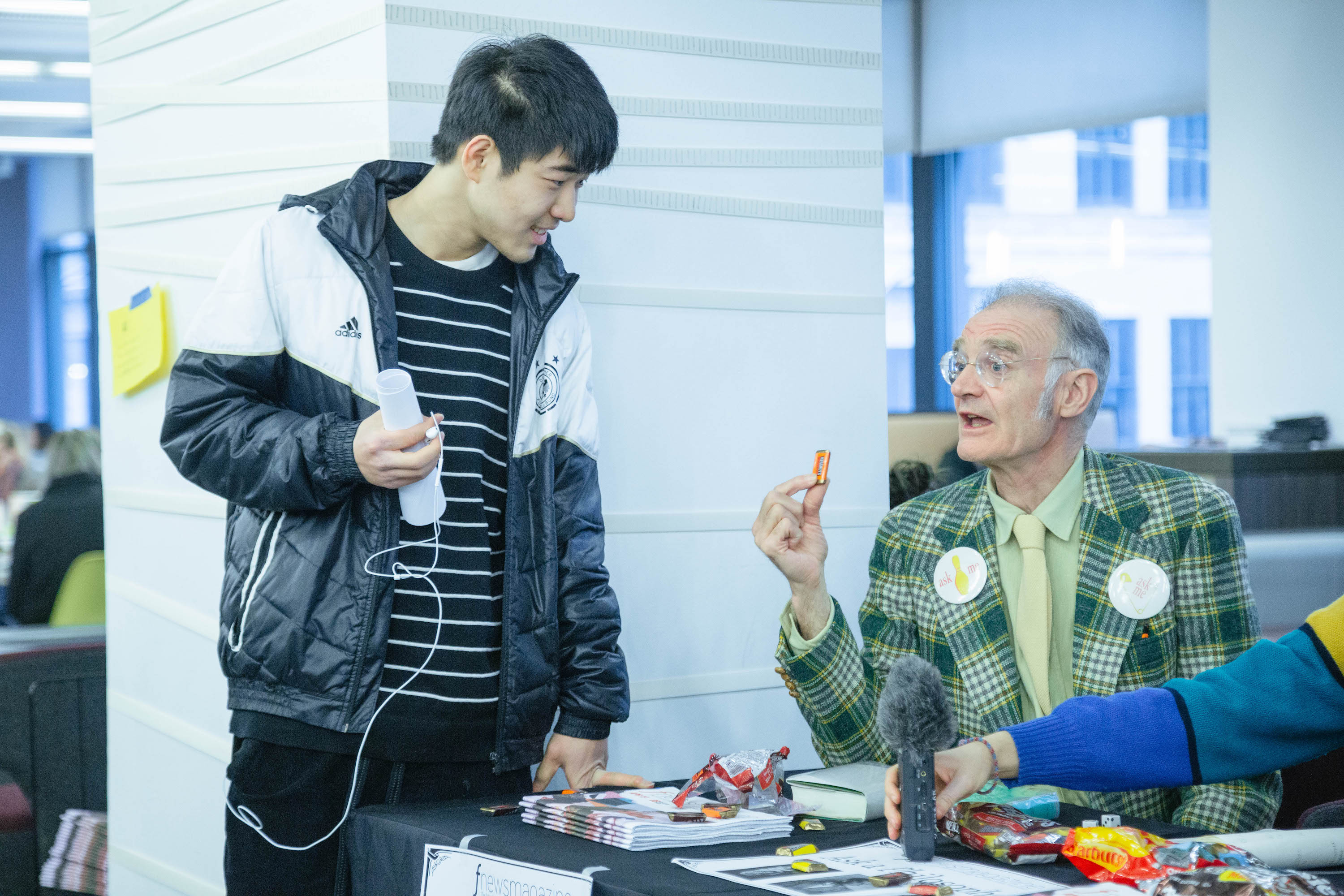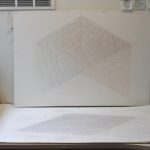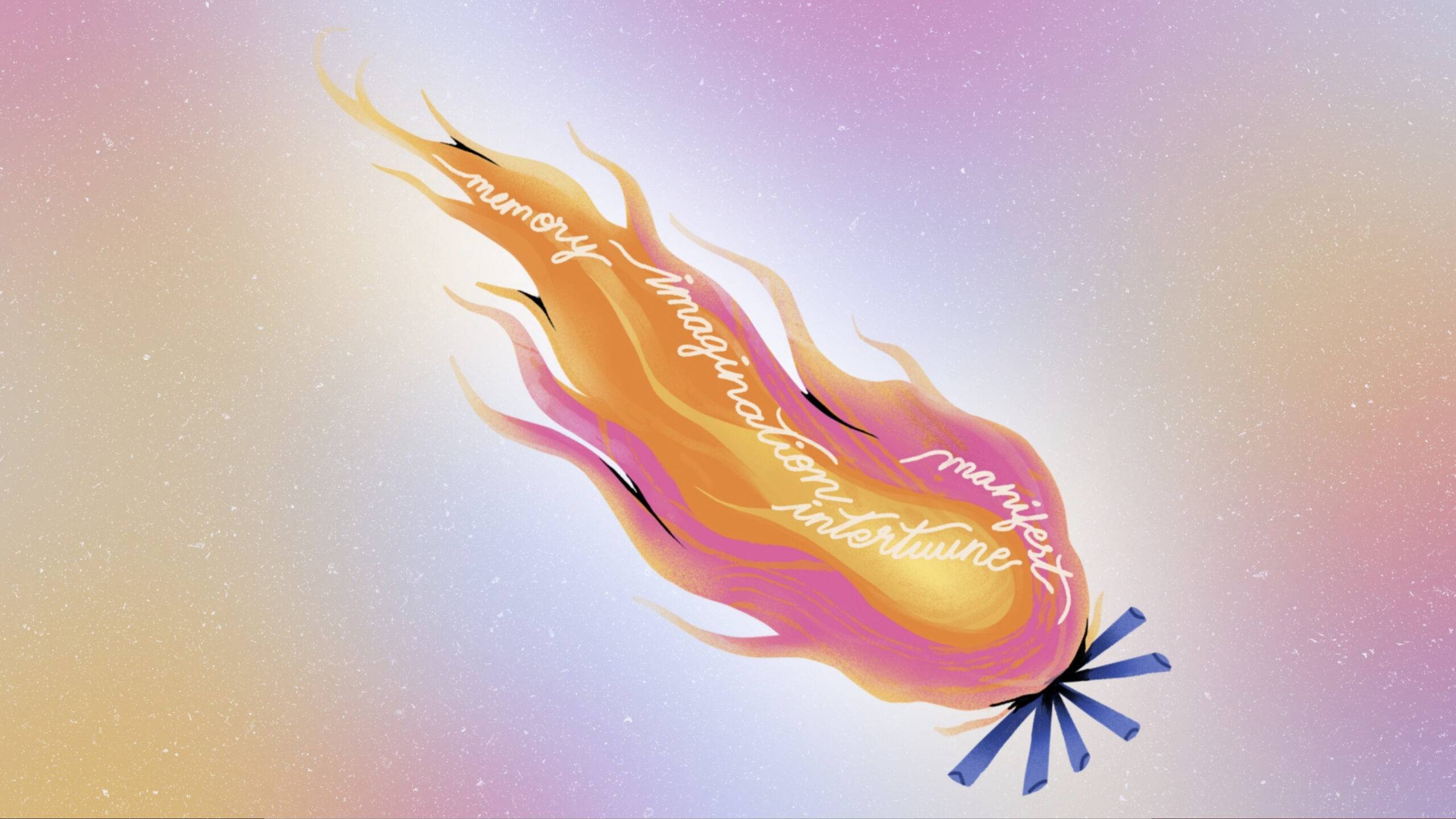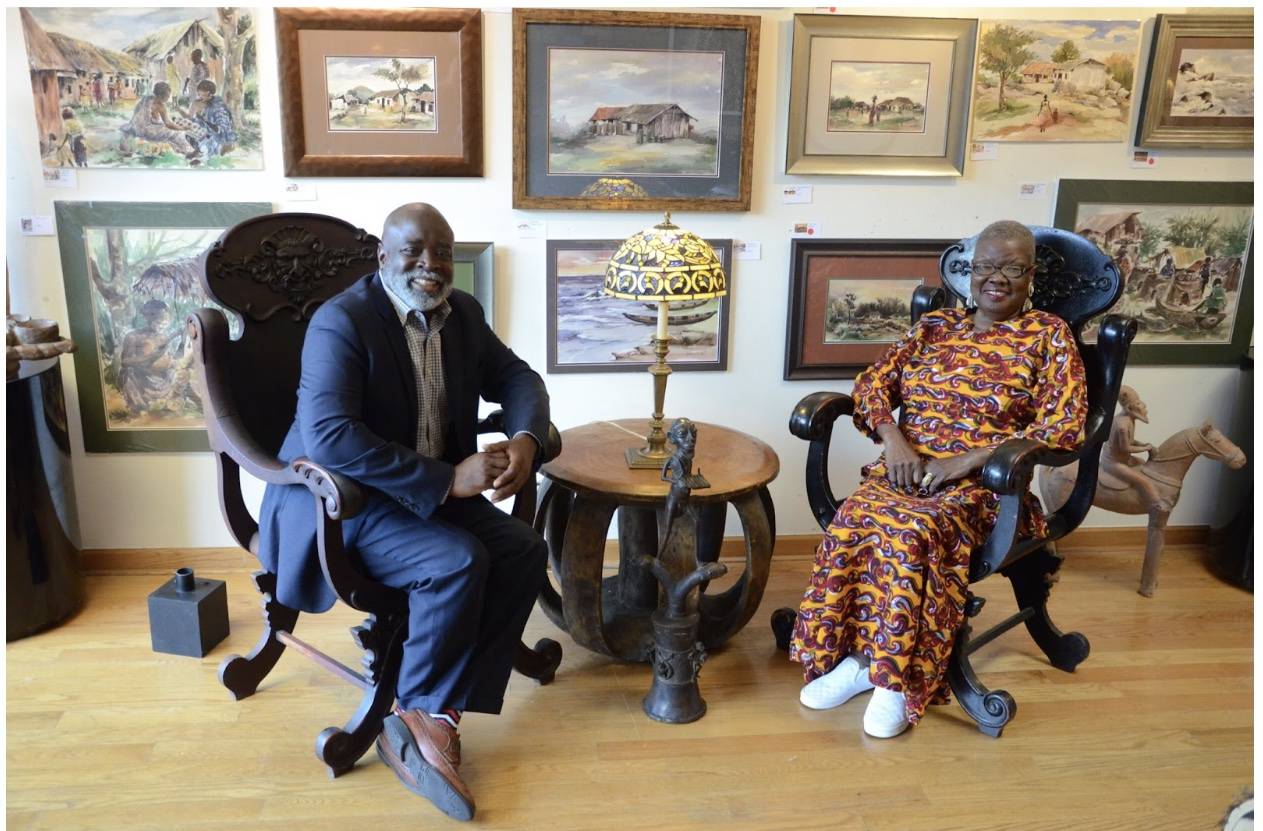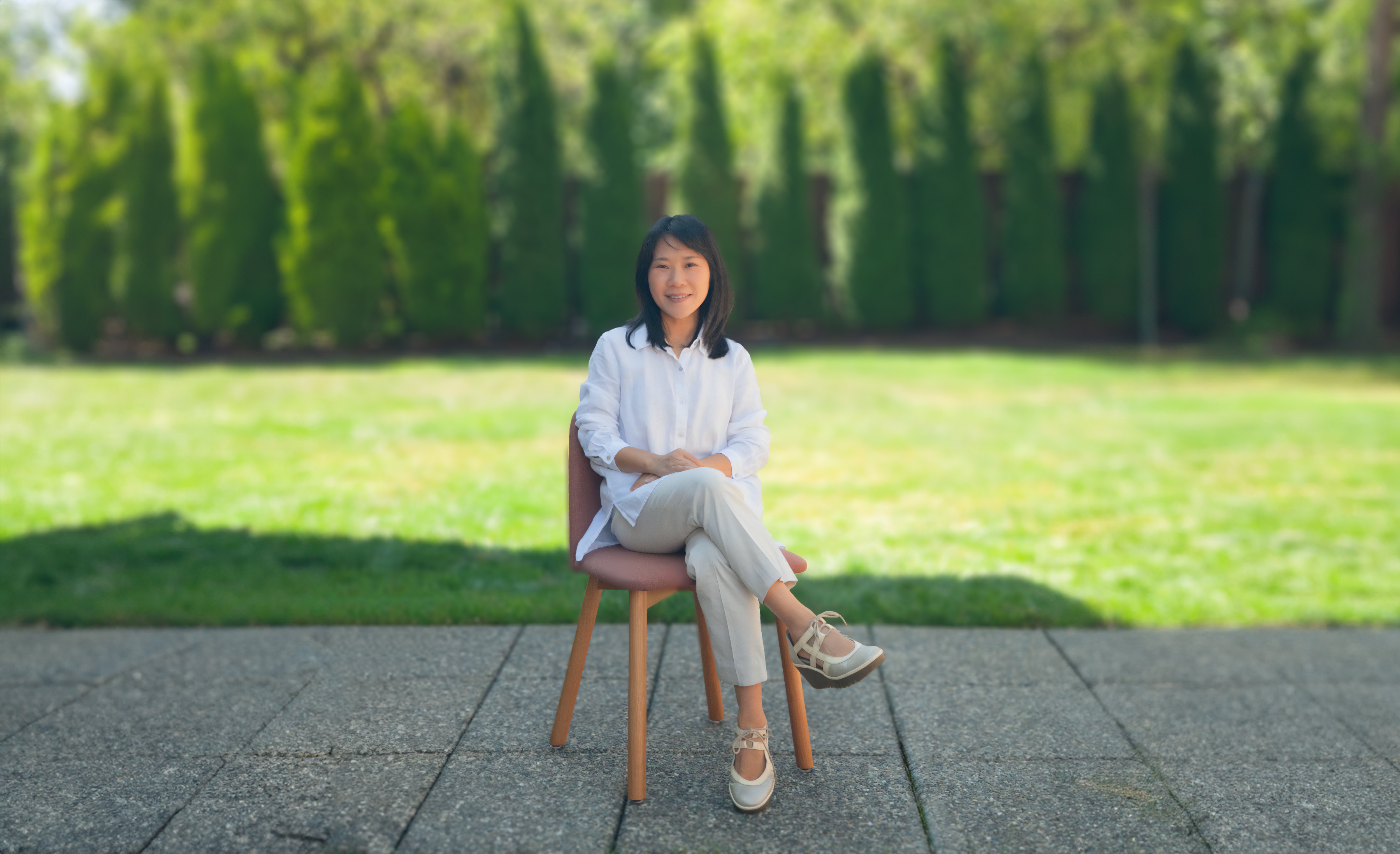Entering the Sharp cafeteria, I saw two posters reading “Ask a Philosopher” resting on a table that showed pictures of Socrates, Ludwig Wittgenstein, and bell hooks. Standing there was a man in a lime green and yellow jacket with two pins affixed to either side that read “Ask Me!” in big, bold letters. There were two large books in front of him, each a copy of Diogenes Laërtius’ “Lives of Eminent Philosophers.” This was Dr. Simon Anderson, associate professor of art history, and philosopher for the hour.
F Newsmagazine had set up the table hoping students would ask Simon their burning questions. They wanted to know what was on students’ minds, and how they responded to being prompted thus in public. Simon, F Newsmagazine Staff Writer Leo Smith, and I sat down in front of a cornucopia of candy — students’ incentive for asking questions. The editor organizing this event, Dustin Lowman, warned us to “expect rejection.” So there we were, Zoom recorder in hand, awaiting rejection.
Eventually someone came up and asked, “What is this?” We explained and requested a question, reminding them that the reward was candy. They opened their mouth to say something, then hesitated. We would come to know this moment of hesitation well.
Throughout the hour of philosophical discussion, many struggled to come up with questions, not because they didn’t have any, but because the pressure to ask was so great, and doubt overrode their thought processes. Because of this, some people simply walked away, while others thought long and hard to craft their questions.
Hannah Masters (BFA 2020) asked, “What makes an artist a genius?”
“Yelp. Or, like, Tripadvisor,” Simon quipped.
Hannah continued, “You see that word ‘genius’ pinned onto a lot of artists. It’s just kinda funny.”
“Yes — we think that these people are geniuses forever,” Simon said. “Even if they drive into a tree, we still think of them as geniuses. There are people who argue that it’s a fairytale. The ‘genius’ myth allows us to focus on one thing rather than seeing the complex reality of the whole.” He paused, then asked, “Do you feel challenged by it, being here in art school?”
“When I was thinking about going to art school,” Hannah said, “I was thinking about it more in technical terms — working with wood, or ceramics, or other materials. But being a genius is a whole different responsibility than the technical side. I don’t even think of it as a responsibility for someone to need to take on. I feel like the canon of art history gives you pressure to be this type of creative.”
“I think it’s good to think about constantly,” Simon said. “It will help you in the long run.”
Arianna Michak (BFA 2021, Sculpture) asked,“What are your favorite philosophy subjects?”
“Truth and beauty,” was Simon’s response.
“What about them?” Hannah asked.
“What about them? Well, I have two questions about each. How are they connected? And how do we know that we’ve found them when we’ve found them?”
“Do you think it’s subjective?” Hannah asked.
“No. I don’t,” Simon said. “I think if it was subjective we wouldn’t have an art museum across the road. I think that’s proof of our collective belief in certain kinds of truth and certain kinds of beauty.”
This suggested the collective desire for art, but many people’s questions stemmed from the anxiety of producing it. What are we making? And, more generally, what are we doing with our lives?

Philosophy in motion — F Newsmagazine Staff Writer Leo Smith, middle (BFA 2021) and Andy Giovale, right (BFA 2022) listen in while Simon Anderson waxes. Photograph by John Choi.
Because of these questions, I asked Simon, “If you were to have people read philosophy to answer their questions today, who would be the philosopher to turn to?”
“Right now, I think that we live in a rather decadent era where our answers are more likely to be other questions than answers,” Simon said. “I don’t think that’s necessarily helpful in all circumstances so I prefer, right now, to think of simpler questions, like, how can I be happy?”
He went on to name a philosopher, Epicurus, whose philosophy revolved around that question. Epicurus theorized that satisfaction, big or small — eating good food, finishing an essay — is its own pleasure. So, how can you be satisfied?
This response was helpful in answering the general, underlying concern everyone seemed to have over what exactly to do with themselves as artists, and also as humans. However, despite this simple answer, Simon did note that his own happiness “relies on adjusting my ideas to the present reality, if I can do that and still sleep at night.”
Because, sometimes, the present reality sucks. This came up during a conversation with Ella Fainaru-Wada (BFA 2022) who asked, “Why are people mean?”
“Because they’re people,” Simon said. “In other words, people are mean because they are often regarding the world from different dimensions and they often protect their worlds through meanness. People are mean because we live together in the world.” Ella seemed disheartened by this answer. Earlier, Evan Marnell (BFA 2022, Art Edu) had asked, “Why do people fall in love?” It was an interesting contrast to Ella’s question. Because of this, Simon gave her two chocolates, one for meanness, and one for love.
Hearing my peers’ concerns out loud, I realized I had similar concerns. What does it mean to be an artist? Why are people mean? Why do people fall in love? But despite having asked, I hadn’t taken the time to try and answer any of them. Simon’s responses provoked inquiry, rather than leaving unanswered questions to fester. Some answers left me with more questions, and some answers I didn’t want to hear. But I came to the conclusion that, while we never reach satisfying answers, the important thing is to keep questioning, delving into this study of life.

